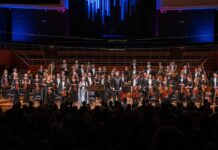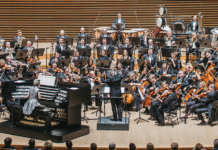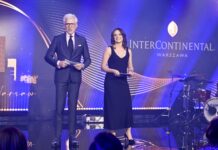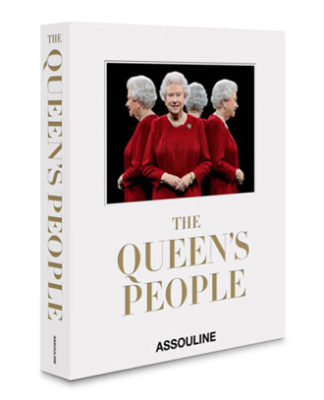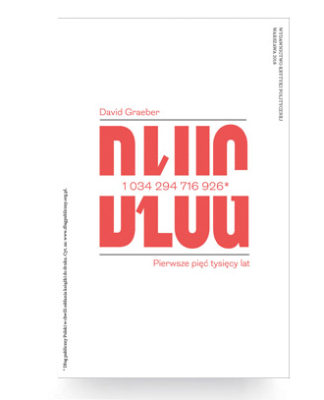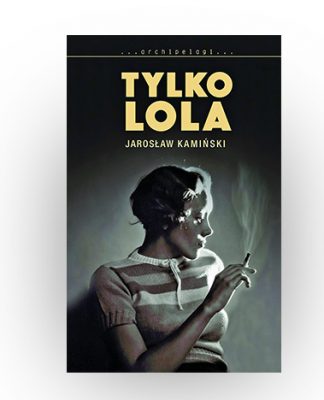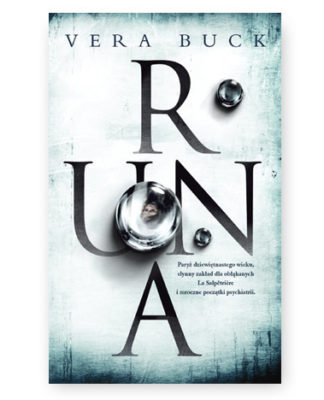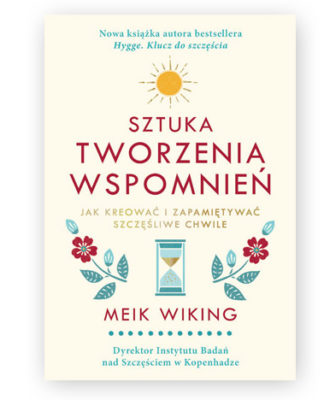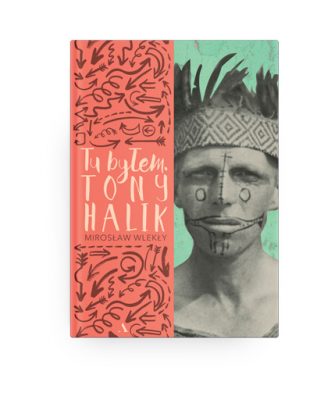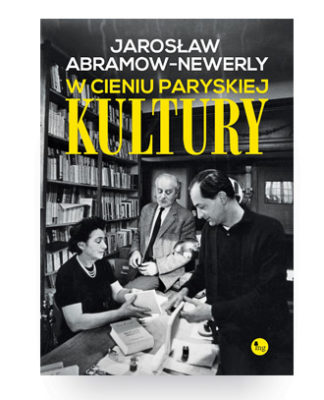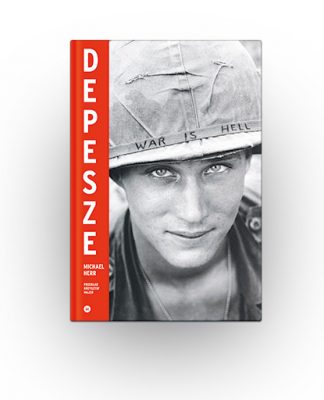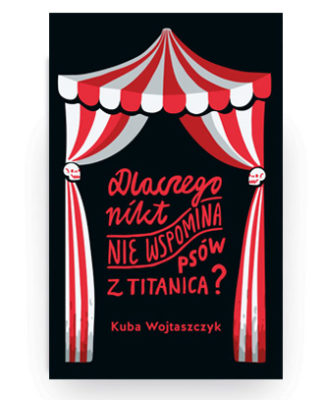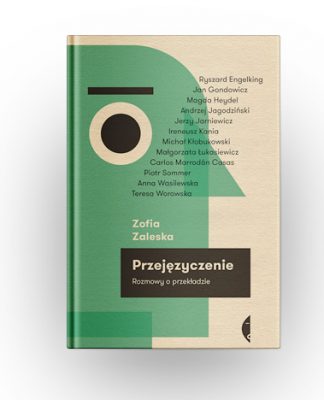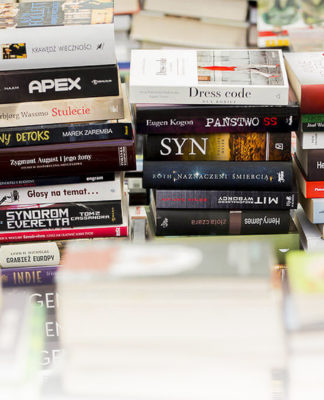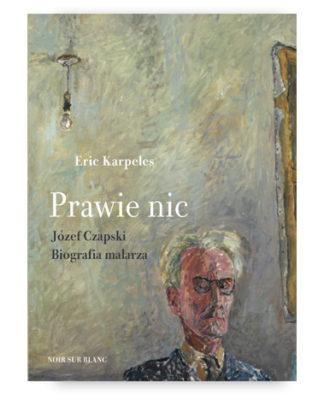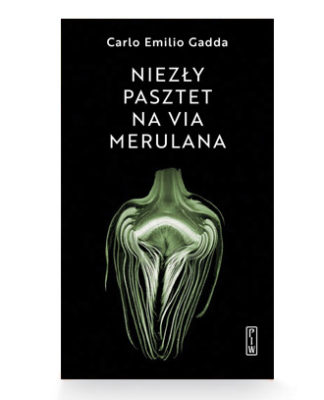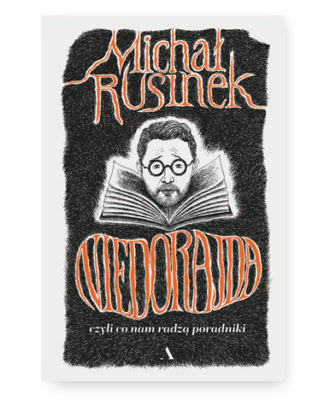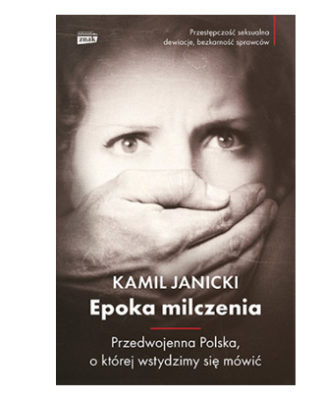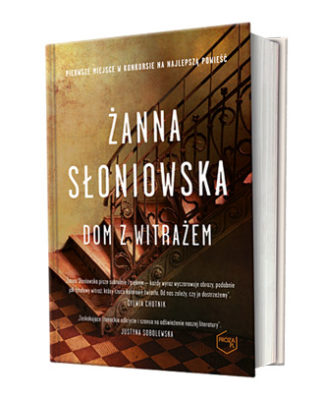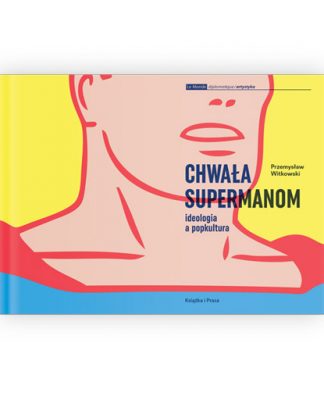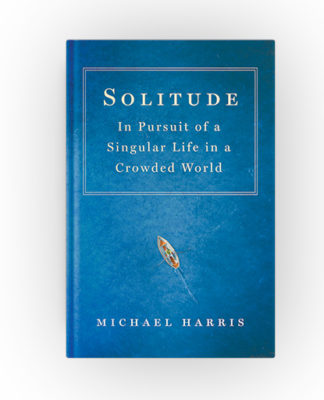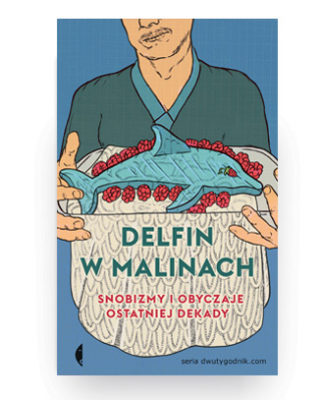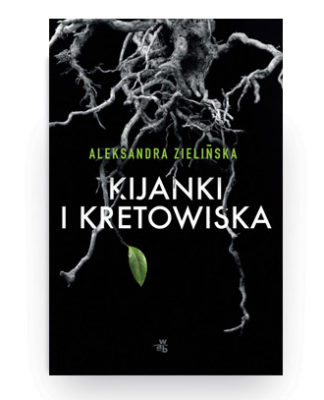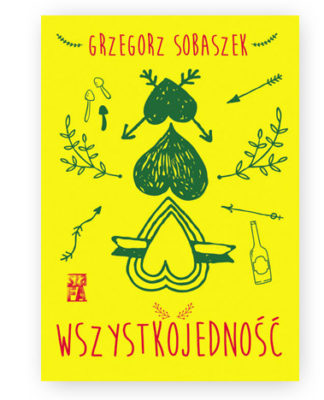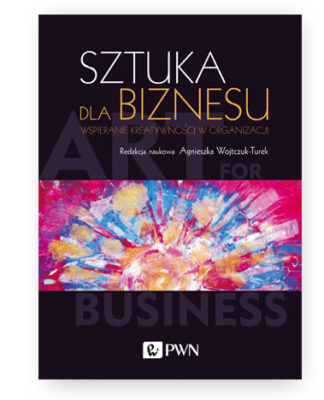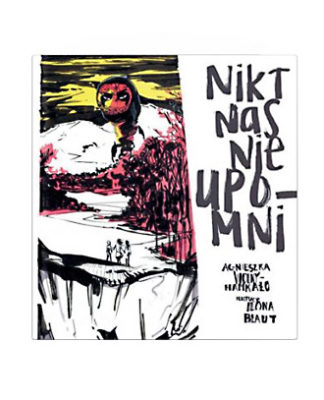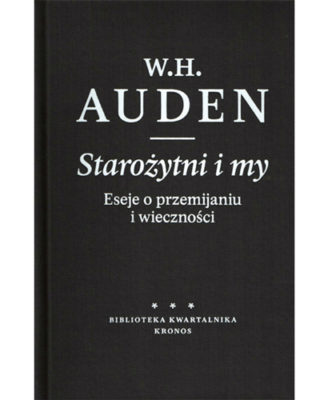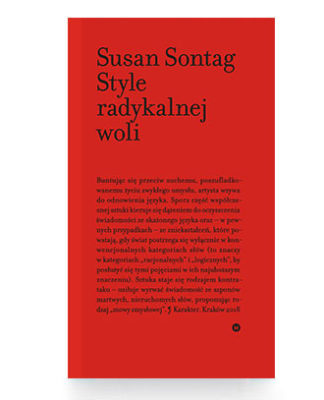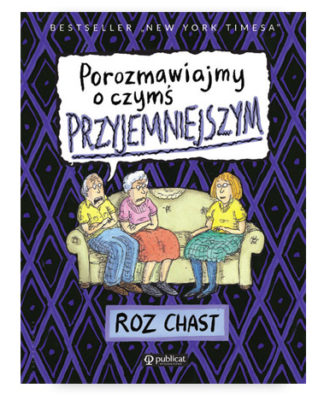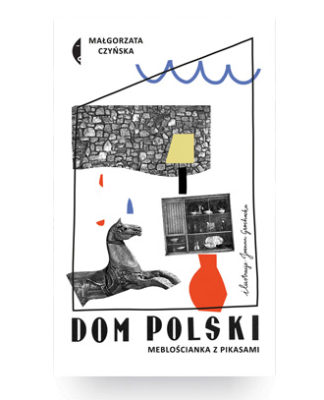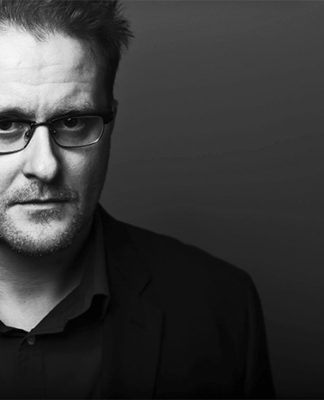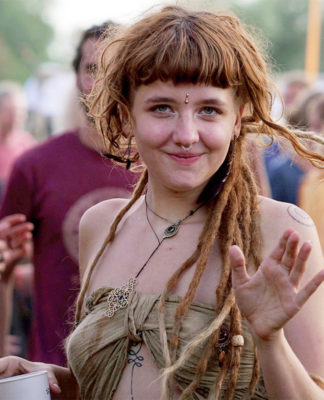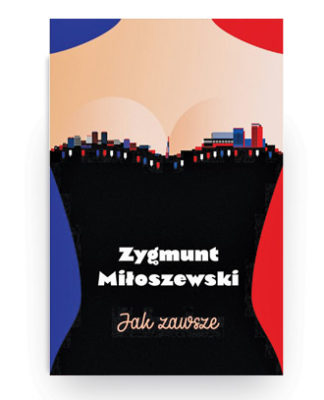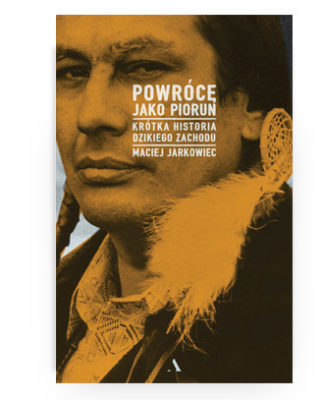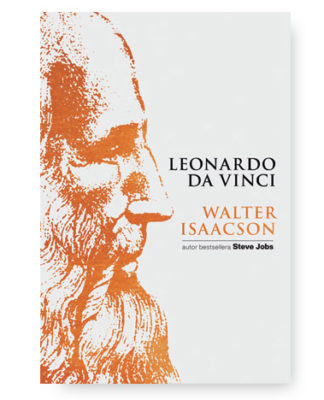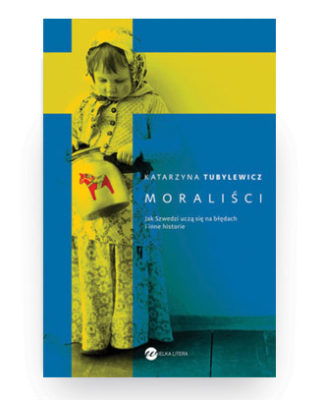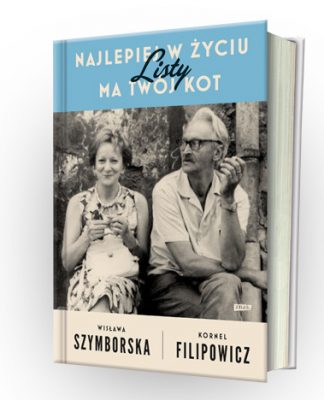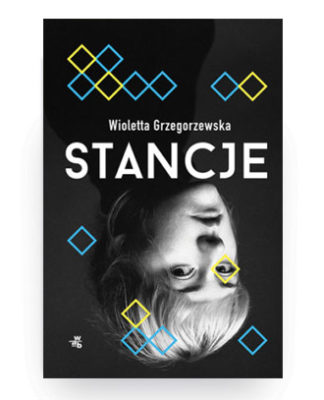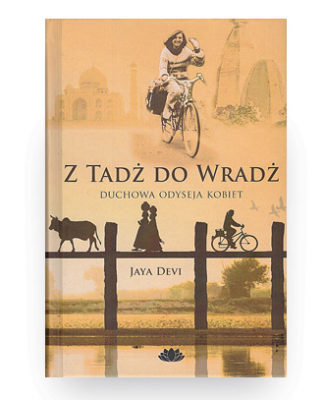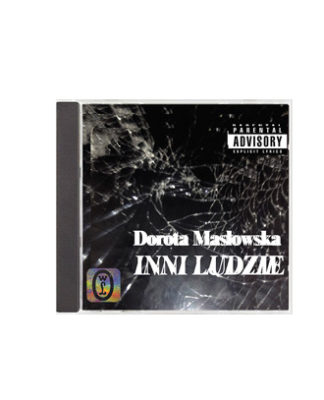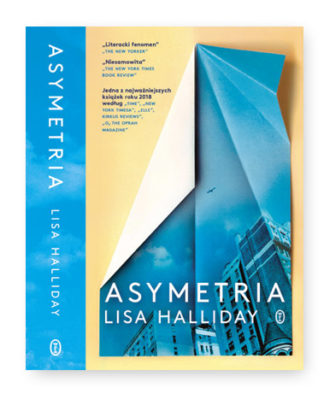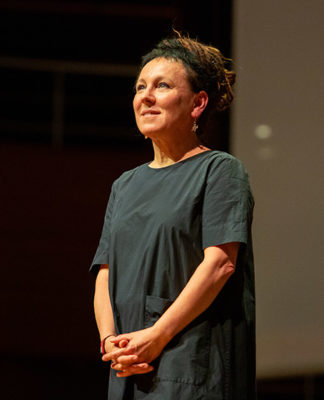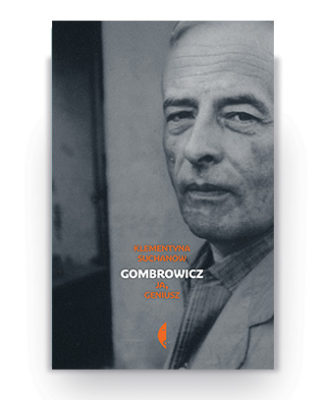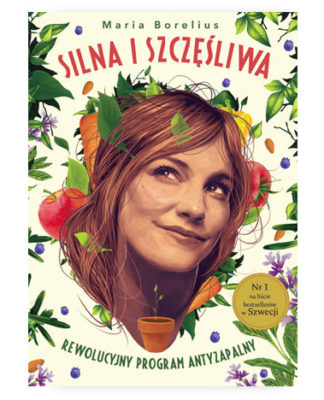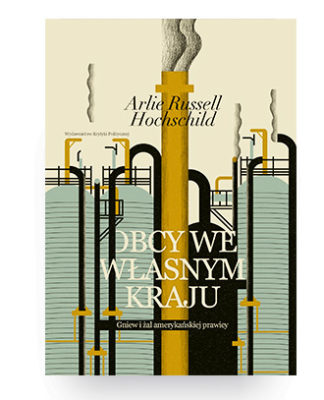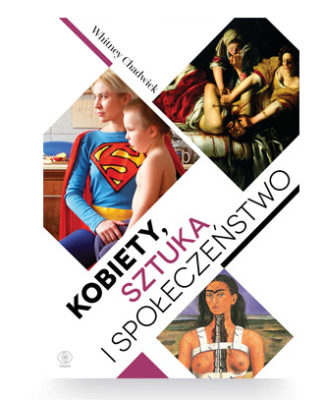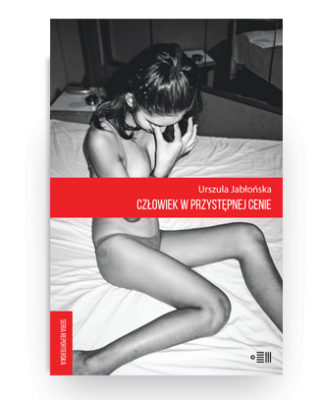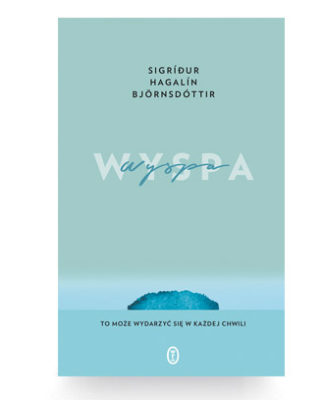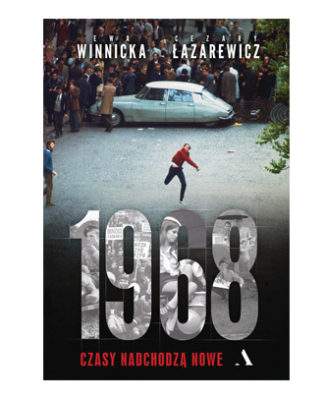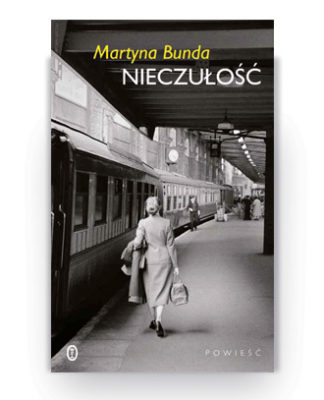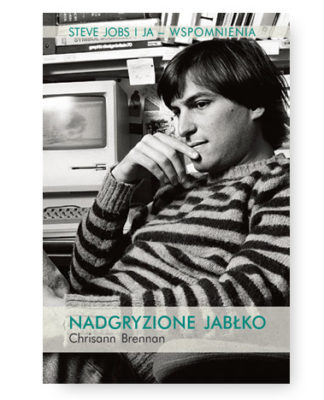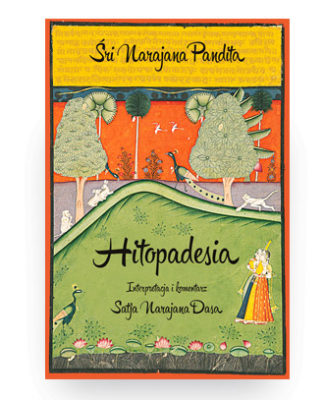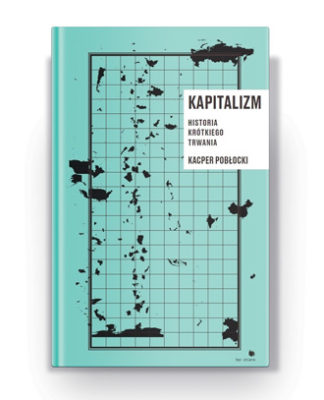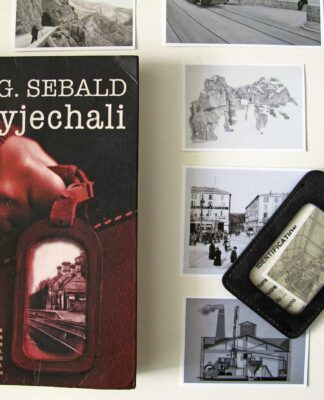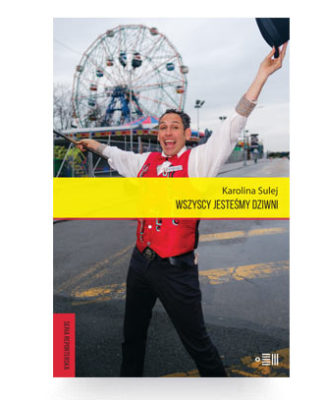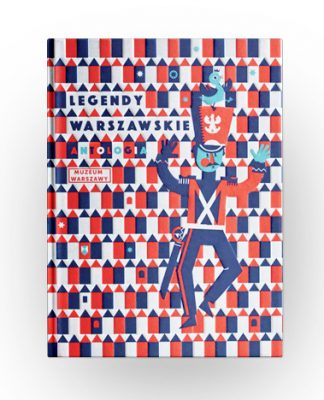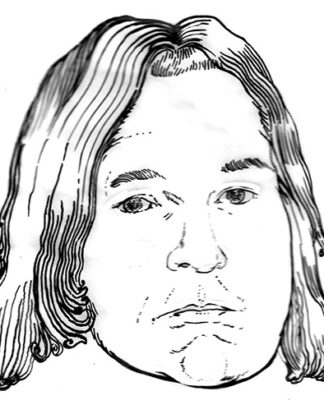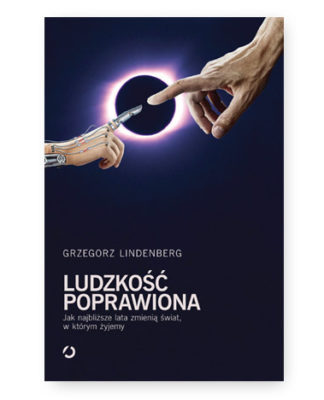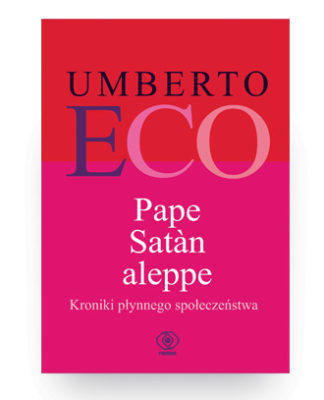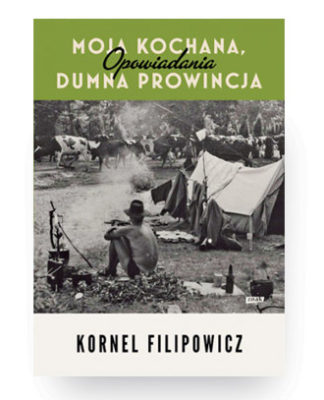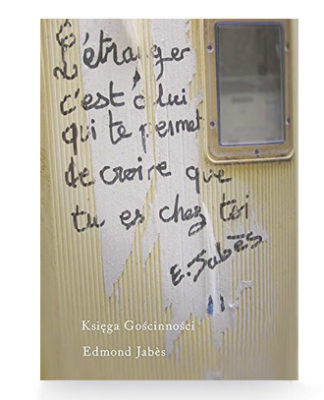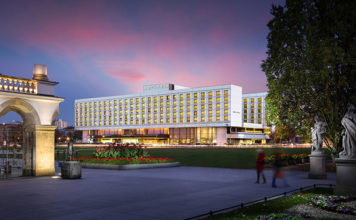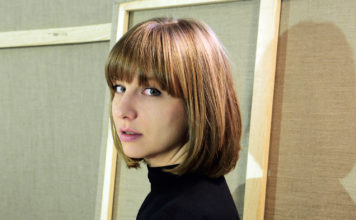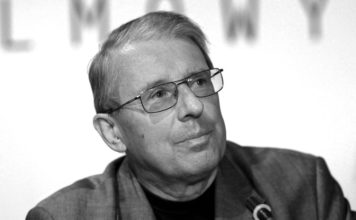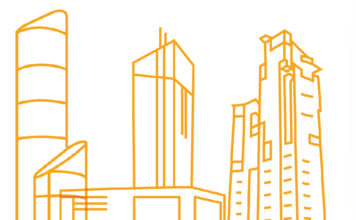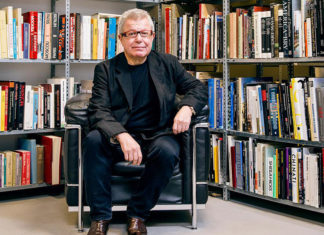She has been singing with unbridled joy and passion since she was a child, but only now does Ewa Vesin feel it’s time to spread her wings. She feels at home on some of the greatest stages around the world, performing favourite heroines such as Tosca, Aida and Turandot. We talk to Vesin after her success in Vienna alongside Piotr Beczała in Mariusz Treliński’s Halka, and prior to its season in Warsaw.
Text: Przemysław Bociąga
Photos: Michał Zagórny
Stylist: Magda Baczyńska Vel Mróz
Who is Ewa Vesin. She seems to be a character from an opera. Act I: the young girl who wants to sing.
You can say that again. I used to use a deodorant spray as a microphone and sang in front of the mirror when I was little. My first cassette tape was a foreign import – Modern Talking!
Not everyone who sang in front of the mirror as a child made it as an operatic soloist.
I found my calling during 2nd grade music school. I’d wanted to play the clarinet. Prior to the entrance exams, I saw that there was such a thing as a vocal class. I decided that was it. I knew I could sing. And it would be cheaper for my mother, as she wouldn’t have to buy an instrument. I went to the director and asked her to remove me from the list of candidates for the instrumental class and let me enter the vocal class. The only thing she asked was whether I knew what I was doing. When I got home I simply announced what I’d done.
What did your mother have to say?
My mother only considered music as a hobby and when I decided to go to music school, she thought it was too late. I dropped out of the first-grade music school myself, because otherwise I would not have been able to take part in performances with the Wanda Kaniorowa Folk Song and Dance Group in Lublin. That wasn’t an option for me! I don’t regret that decision – everything I do on stage in terms of acting, I owe to them. I feel great on stage and I don’t have stage fright. I can’t wait to go on. Colleagues always ask me, how I do it. It’s simple. I tell myself that there’s nobody in the audience who could even stand up and speak into a microphone, let alone sing.

Opera is an artform that is subject to professional criticism.
If I thought about the fact that there were critics in the audience and they were going to write about me, I’d probably never go on stage. I don’t think I found myself on stage by accident. It was meant to happen. I am very happy to be able to perform in front of an audience. However, we are only people and we work with a live instrument – the voice. Sometimes we have a cold; we get angry; or we have a headache. You always have to mobilize yourself in order to give as much as possible.
Act II. Ewa is 27 years old and turns down an offer from the Grand Theatre.
At the Wagner Festival in Wrocław I sang Sieglinde in Die Walküre. The performance was a success, after which I received a phone call with a proposal to perform at the Grand Theatre with the National Opera. I refused. Not because I was conceited, but I decided that it was too early for me to perform on such a big stage. I was too young and felt I had to wait.
How do you view your decision with the benefit of hindsight?
It was the right choice. Only now, 15 years later, do I feel that I’m really ready to spread my wings. Besides which, my voice really dictates the roles I can perform at my age. If I had sung all these dramatic parts earlier, I’d probably come to the end of my career a lot sooner. And they wouldn’t have sounded the way they should.
Does your voice wear out?
It develops and matures. These dramatic sounds are fully heard when a woman is in her late forties. And this is the best time to take on the big roles. I’m performing in Prokofiev’s The Fiery Angel directed by Mariusz Treliński and I can’t imagine having sung the role of Renata 10 years ago. These roles are difficult. They require familiarity with the stage, technical experience, and knowledge of one’s own voice in various conditions. Singing a role is one thing, but then there are all those weeks of rehearsals. Directors and conductors will encourage you not to sing in full voice at rehearsals, but it’s still hard work. You have to split your strength over three weeks of rehearsals and four or five performances.
Singing is one thing and acting is another. Two roles in one.
Once upon a time the opera was mainly singing – the singer went on stage, from left to right or back to front, and that was the extent of the acting. Today, the demands are far greater.

What changed?
Singing is not always enough. We need to move with the times. People have more and more external stimuli and more and more possibilities to track what is happening in the world. We used to be locked in our opera box. Today, the viewer is very demanding, thanks to greater variety and choice. There is also a conflict of interest because directors want to leave their mark on a work. In The Fiery Angel, the biggest challenge was to combine what the director wanted on stage, while meeting the demands of a five-act opera. I am above all a singer and I am judged that way. When I sang the same part in Rome, everything was arranged to maximize my comfort. There are different styles of direction. There are also roles that I like very much, for example Tosca. I’m performing it at the Grand Theatre, directed by Barbara Wysocka. In general, verismo opera is something I like very much. We play real people. It is easy to analyze those kinds of operas and they become easier to perform.
Act III of the opera Ewa Vesin: our heroine decides to change her style of work.
I make decisions quickly. Maybe that’s a good thing, maybe it’s bad. Leaving the Wrocław Opera was just such a decision. I threw myself into very deep water: I had three concert offers and that was it. I didn’t know what to do next. Three concerts are not a lot and it is impossible to support a family. Fortunately, more directors and conductors were interested in working with me, and the Tact agency has been looking after me for two years. Important theatres around the world are slowly starting to call me, but there’s no rhyme or reason to it. I’ve never rushed into a career. I can’t tell you what my dream role is, or which theatre I’d like to perform in. I like surprises.
Was Halka in Vienna one of those surprises?
Definitely. I had two performances in Warsaw on February 19 and 21, and all of a sudden, I landed in Vienna. I got a call from my agent at about eleven o’clock in the evening…

The night before?
Yes, my agent Marcin Kopeć called and asked me not to drink and go to bed, because the following day was going to be tough. At 5pm I landed in Vienna and I literally went to the costume fitting with a sandwich in my hand. All I had was a quick walk-thru with the stage manager to refresh my memory of the direction, and that was it. I had attended previous rehearsals, so I had the first three acts outlined, but when it came to the fourth act, well… I hadn’t even performed it in Warsaw! So, we started working on that first and fortunately the first three acts quickly came back to me, so we got through it.
Getting into the role from day to day must be extremely difficult.
Yes, but I have been singing Halka for years, so when it comes to the music, technical and vocal issues, it’s like a well-oiled machine.
New orchestras and arrangements don’t pose a problem for you?
The conductor Łukasz Borowicz really knows how to look after singers. He is a fantastic accompanist and listens incredibly well, so I was calm because we were on the same wavelength. The Viennese audience was also amazing. Of course, I’ve received applause before and I know that Polish audiences usually wait until the end of a performance to show their appreciation, but in Vienna they even interrupted Halka’s aria ‘Gdyby rannym słonkiem’. I actually froze for a few seconds before I could continue singing.
And how does this Halka compare to others?
I have never had the opportunity to perform in a so-called “traditional” production with folk costumes and decor. My first Halka was staged by Laco Adamik at the Wroclaw Opera and was thoroughly contemporary. Later, I sang in Cracow, in a production directed by Waldemar Zawodziński with Mariusz Kwiecień, who was making his debut in the role of Janusz. Later I debuted in Halka at the Grand Theatre in an earlier production. I had to wear a 20-kilogram sheepskin coat. I didn’t think I’d get through the first act. I’m quite familiar with the different productions of Halka. In Mariusz Treliński’s production, I won’t be his usual type of heroine. She is not as difficult and complex as his other female characters, but she will certainly be very contemporary.
Presenting Halka to audiences outside Poland is quite challenging, isn’t it?
I guess so, but fortunately adrenaline gets me going. And my colleagues were very supportive. Piotr Beczała was the first to say hello. He brought chocolates to my dressing room and reassured me after each act.
His role in the creation of this performance cannot be overestimated.
It’s fantastic! Moniuszko is yet to be surpassed and this opera should be seen around the world, it’s beautiful. It’s won over the Viennese. Without taking credit away from the people behind this production, I think the work itself has a lot to do with it. Perhaps there is hope that other theatres around the world will finally stage Halka.
Your voice – a dramatic soprano – allows you to sing the parts of strong, expressive heroines.
Like my beloved Tosca or Turandot, which I’m performing in Rome. Aida awaits in Prague. Then I’m doing Tosca in Australia, and in the autumn of 2021 I will fly to Chile to perform Andrea Chenier at Opera Nacional de Santiago. La Gioconda doesn’t seem to be able to find an audience, but I hope it will some day. I love verismo opera. I find it easier to play such heroines. Of course, I always die (laughs). The roles are often the same: you fall in love, someone fights over you, and you die.
Strong women, whose worlds are created by men.
Yes, if it’s this love that kills them, I wonder if they’re really that strong. Is it strength? Personally, I don’t necessarily think so. Rome, Santiago… you’re quite the globetrotter.
And yet, it’s happened quite slowly. All good things take time in my artistic life and I’m glad I had time for children. Jula, who is already 18, will be finishing high school soon and can’t wait to get out of the house. Wojtek is 10 years old, so it’s not easy with him yet. I have a wonderful husband who supports me a lot. He is a musician at the Wrocław Opera and knows the ins and outs of this profession. It actually seems as though things get better the more challenges and responsibilities there are. My daughter is very matter-of-fact and disciplined – most likely because I’m away so much. When I’m working, my schedule is full. I try to live in the theatre. I don’t like hotels, because I like to divide my time between work and play and I don’t like to waste time commuting. I have everything planned, but without my husband’s support it would not be possible. I don’t think this is a profession for people who have to look after children.

Can you afford to rest on your laurels?
Probably not. But I can look at things this way, because my family is a stepping stone. I know there are more important things than singing.
And they are?
I love my job, but I have something to come back to. If I wake up sick on the day of a performance – so sick that I can’t sing – my first reaction is to be sad and disappointed, because something I have worked hard for will not happen. But then I hear my family telling me that it’s okay; nothing’s happened; that’s life; they still love me; it’s not the end of the world.
Who or what influences your choice of roles?
I was offered Tosca at the Bolshoi Theatre in Moscow in Autumn. I was honoured, but the dates coincided with performances at the Grand Theater, and I’d already committed to singing Halka and Tosca in Warsaw. I had to turn down the offer in Moscow, because once I give my word, it’s set in stone. However, I don’t think I’ve burnt any bridges.
Surely the opera of Ewa Vesin cannot end in the third act. There must be a fourth?
I have 10 years of singing ahead of me… 15 at most. Then I will need to find something else to do. Last year I defended my PhD thesis so that I could work at university. When that day comes, I would like to be able to devote myself entirely to pedagogy.

You’re juggling those two careers now, aren’t you?
We organize the International Antonina Campi Vocal Competition. Campi came from Miklaszewicz. I developed the idea with my friend Mateusz Wiśniewski, who is now the director of the competition. He took on the less enjoyable job of looking after the finances and organization (laughs). The theatre in Lublin was finally built around 40 years ago with an opera theatre, a stage with a trapdoor, and an orchestra pit.
We can make our musical dreams come true there. Do you remember the headmistress at the music school, who warned me about vocal class exams? Her name is Honorata Pukos and I am pleased to be organising masterclasses with her now. Under the patronage of Antonina Campi from Miklaszewicz, we are not only running a competition, but also finding singers and teachers to run workshops for young musicians – masterclasses that will result in a public performance. We are also organizing conferences in cooperation with the Catholic University of Lublin.
When do you find time to rest?
I didn’t take a vacation this year. The doctor wanted me to take a month off, but instead I asked him to get me back on my feet as quickly as possible, because I have obligations. However, my husband and I have promised ourselves to go somewhere this year.
What’s your dream holiday destination?
Italy, I think. On the other hand, I love my house very much and when I have time off, I try to make the most of it.
If there really was an opera about you – the opera of Ewa Vesin – I could imagine a scene in which you find yourself on the 50th floor of Złota 44 during a photoshoot. Much like this, in fact. You have the look of a Hollywood actress.
I’ve always dreamed of being a movie star. However, I don’t know if I’ve got what it takes (laughs). |
Cheesecake on a crunchy base
My great-grandmother’s recipe, which has been passed down through the generations.

INGREDIENTS FOR THE BASE:
600g flour
1 glass of sugar
2 eggs
1 egg yolk
cube of butter
3 teaspoons of baking powder
INGREDIENTS FOR CAKE LAYERS:
1 glass of sugar
1 kg cottage cheese
1/2 a cube of butter
2 vanilla or cream puddings
raisins
INGREDIENTS FOR TOPPING:
1/2 a cube of butter
4 tablespoons of sugar
2 tablespoons of cocoa
2 tablespoons of water
walnuts
PREPARING THE BASE:
Mix all ingredients together. Divide the dough into 3 equal parts. Line a rectangular baking tray with baking paper and spread 1 part of the dough. Place in an oven preheated to 180 degrees Celsius and bake until the base is golden-brown. Repeat the same process with remaining 2 parts of dough.
PREPARATION THE CAKE LAYERS:
Cook all the ingredients over a light flame until combined.
PREPARATION OF THE TOPPING:
Melt all the ingredients (except the nuts) in a saucepan. Create the cake by placing the bases and cheesecake layers alternately, one on top of the other. Pour the topping over the cake and sprinkle with walnuts.






